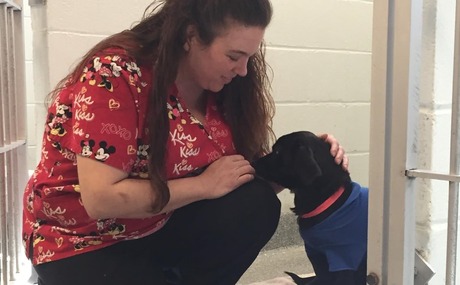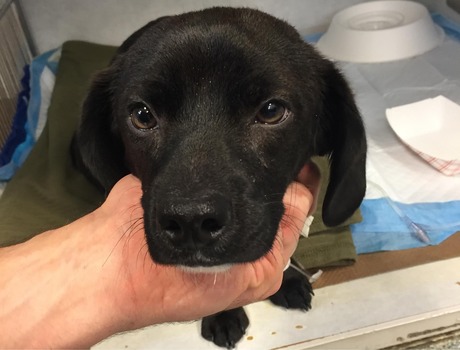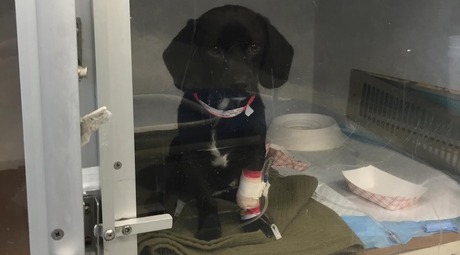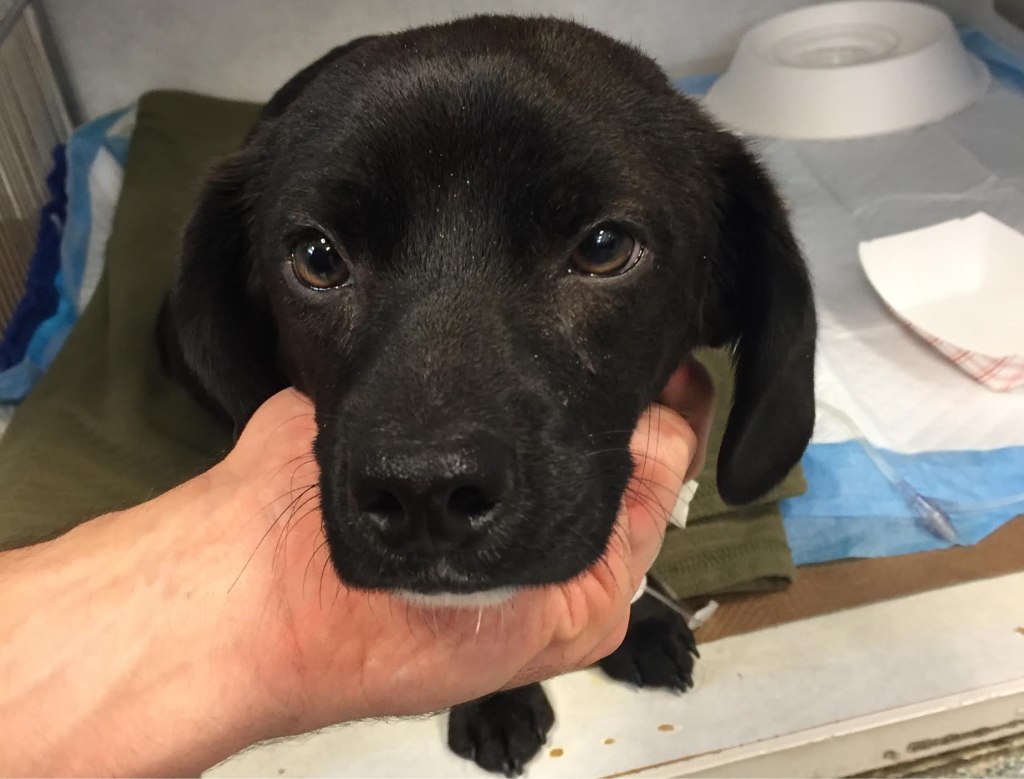As we recognize Pet Poison Prevention Week the story of a little dog named Patrick highlights exactly why it’s so important to keep toxins out of reach from our pets and to dispose of toxic chemicals properly.
Patrick, a one-year-old Beagle mix, was brought into Boston’s Angell Memorial Medical Center by a good Samaritan who found him wandering in a nearby suburb. Likely a stray, Patrick was used to scrounging up his own meals, but this choice proved lethal.
“He was found outside of a large apartment complex, (where) we tend to see a lot of rat poison lying about, especially in the spring and fall, when landlords are most concerned about infestation,” Rob A. Halpin, Director of Public Relations at Angell told reporters. “Rat poison is made to taste delicious, and rats and dogs eat similar foods.”
Lucky for Patrick, he was spotted just in time. Although he was quite ill when he arrived at the hospital, he responded well to treatment and after 3 days he was transferred to a foster home where he got stronger and soaking up the sweet life of living in a loving home.

“He is still being treated intensively with Vitamin K every day – an essential nutrient that will restore his body’s ability to clot blood, which is destroyed by ingesting rat poison,” Halpin told reporters at the time.
After a few months of care, the small black dog was put up for adoption. His youthfulness, sweet face, and heart-tugging story remains a reminder to all of use to be sure to keep toxic chemicals out of reach of all animals and children.
For many dogs, particularly smaller ones, a snack of rat poisoning can have a fatal outcome. Halpin reported that Angell receives anywhere from 15-20 rat poisoning cases at every month, adding that dogs tend to be the worst offenders. Worse than cats.
“The top poisons for cats are plants – mostly lilies, especially at this time of year since they’re so common in the spring – and antifreeze, which has a sweet taste that cats, and wildlife, love,” he added.

Common symptoms of rat poisoning in dogs include difficulty breathing, lethargy, lack of appetite, blood in the stool, vomit, or urine, bleeding from the nose or gums, and pale gums. If an owner sees the dog ingest poison, inducing vomiting and rapidly seeking emergency veterinary care can help. The sooner treatment is started, the better the pet’s chance of recovery.
According the Humane Society, 4,000 pets suffer illness or death due to rat poisoning each year, with countless unreported wildlife deaths are assumed. The Humane Society suggests live-trapping and releasing rodents instead of poisoning. Regular defensive measures can also help; closing garage doors, sealing cracks and entry holes to basements and garages, and securing trash in sturdy, closed containers.
The Environmental Protection Agency has made strides in recent years to work with manufactures to create safer rodent removal products. Currently, regulations state that all rat and mouse poisons must be secured in a protective bait station, and it must be in block or paste form; pellets are not allowed.

There are several other items commonly found in basements and garages that can sicken or kill an animal when ingested: insecticides, anti-freeze, fertilizer, and many lawn care products. For the safety of pets – both your own, or those wandering your neighborhood – and wildlife, be vigilant about keeping these substances on a high shelf or latched cabinet.









